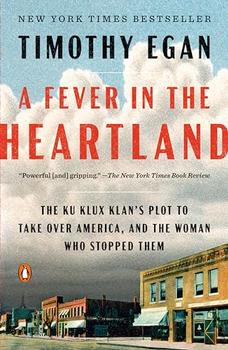Summary | Excerpt | Reviews | Beyond the book | Read-Alikes | Genres & Themes | Author Bio

The Legacy of White Supremacy in American Christianity
by Robert P. JonesDrawing on history, public opinion surveys, and personal experience, Robert P. Jones delivers a provocative examination of the unholy relationship between American Christianity and white supremacy, and issues an urgent call for white Christians to reckon with this legacy for the sake of themselves and the nation.
As the nation grapples with demographic changes and the legacy of racism in America, Christianity's role as a cornerstone of white supremacy has been largely overlooked. But white Christians—from evangelicals in the South to mainline Protestants in the Midwest and Catholics in the Northeast—have not just been complacent or complicit; rather, as the dominant cultural power, they have constructed and sustained a project of protecting white supremacy and opposing black equality that has framed the entire American story.
With his family's 1815 Bible in one hand and contemporary public opinion surveys by Public Religion Research Institute (PRRI) in the other, Robert P. Jones delivers a groundbreaking analysis of the repressed history of the symbiotic relationship between Christianity and white supremacy. White Too Long demonstrates how deeply racist attitudes have become embedded in the DNA of white Christian identity over time and calls for an honest reckoning with a complicated, painful, and even shameful past. Jones challenges white Christians to acknowledge that public apologies are not enough—accepting responsibility for the past requires work toward repair in the present.
White Too Long is not an appeal to altruism. Drawing on lessons gleaned from case studies of communities beginning to face these challenges, Jones argues that contemporary white Christians must confront these unsettling truths because this is the only way to salvage the integrity of their faith and their own identities. More broadly, it is no exaggeration to say that not just the future of white Christianity but the outcome of the American experiment is at stake.
Drawing on archival research, public opinion survey data and his own memories of growing up in the Deep South, Jones, founder and CEO of the Public Religion Research Institute (PRRI), builds a convincing case that white Christianity has played a central role in sustaining racist attitudes and actions in America. According to Jones, despite the official proclamations of churches at the national, institutional level in favor of racial justice, the theology of American Christianity provides the foundation for white supremacist attitudes. He describes the "cultural tool kit" of American Christians, formed by primal beliefs in individual free will, interpersonal relationships and personal sin, that allows individual Christians to proclaim that they are not racist while they continue to support racist policies and practices...continued
Full Review
 (947 words)
(947 words)
(Reviewed by Lisa Bintrim).
 In White Too Long, Robert P. Jones makes clear that his view of racial justice includes a "tangible economic accounting" of the ways in which churches have benefited from slavery and white supremacy, as well as restitution to the Black community. In doing so, Jones joins a large chorus of activists, politicians and others calling for reparations for the enslavement and continued oppression of Black Americans. That chorus has been larger and louder since reparations have become part of the Black Lives Matter movement platform and especially since the killing of George Floyd in May 2020.
In White Too Long, Robert P. Jones makes clear that his view of racial justice includes a "tangible economic accounting" of the ways in which churches have benefited from slavery and white supremacy, as well as restitution to the Black community. In doing so, Jones joins a large chorus of activists, politicians and others calling for reparations for the enslavement and continued oppression of Black Americans. That chorus has been larger and louder since reparations have become part of the Black Lives Matter movement platform and especially since the killing of George Floyd in May 2020.
Those in favor of reparations argue that Black Americans have suffered from racist policies and practices, from slavery through to today, that have ...

If you liked White Too Long, try these:

by Leah Sottile
Published 2025
An investigation of the New Age movement in America that aims to understand its appeal to women and the self-proclaimed prophetesses, like Love Has Won's Amy Carlson, who've created kingdoms for themselves within it.

by Timothy Egan
Published 2024
A historical thriller by the Pulitzer and National Book Award-winning author that tells the riveting story of the Klan's rise to power in the 1920s, the cunning con man who drove that rise, and the woman who stopped them.